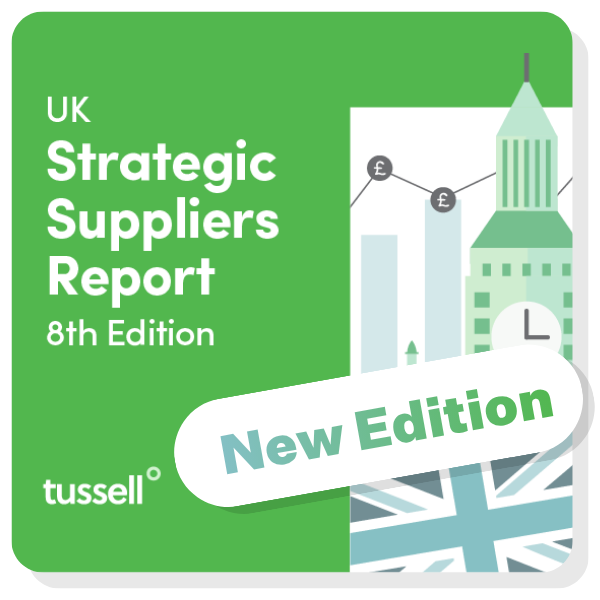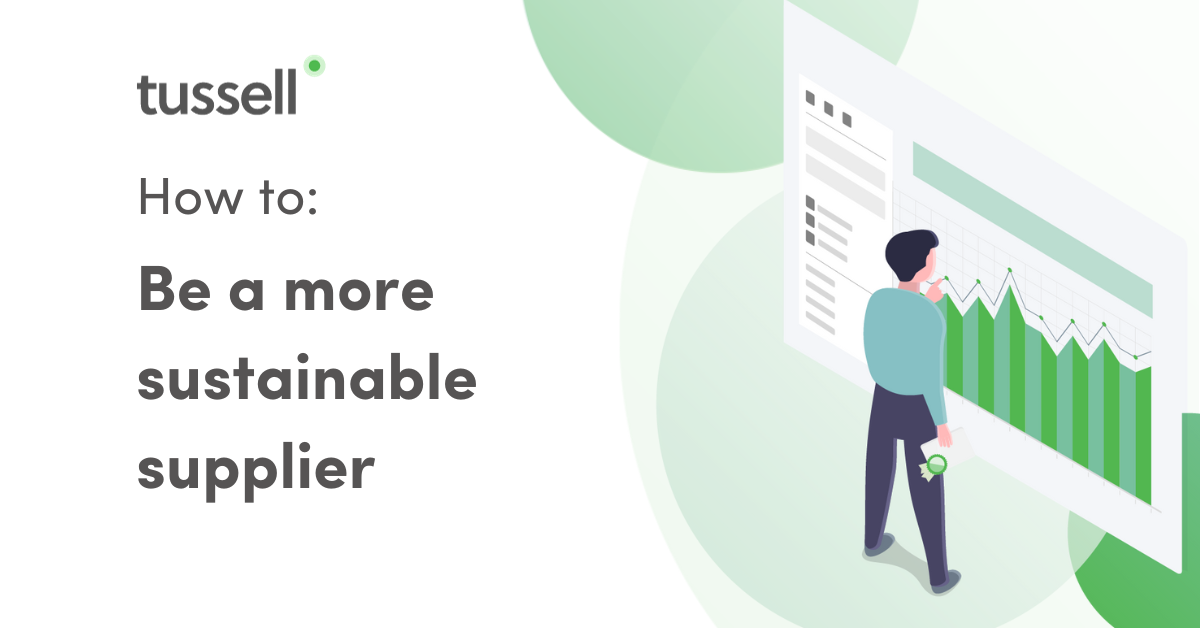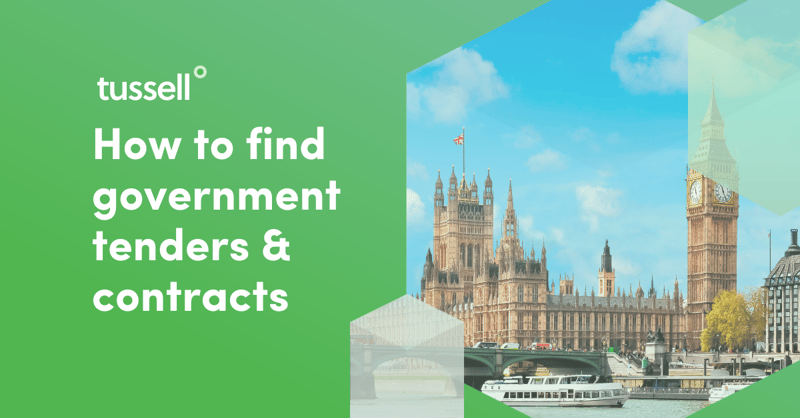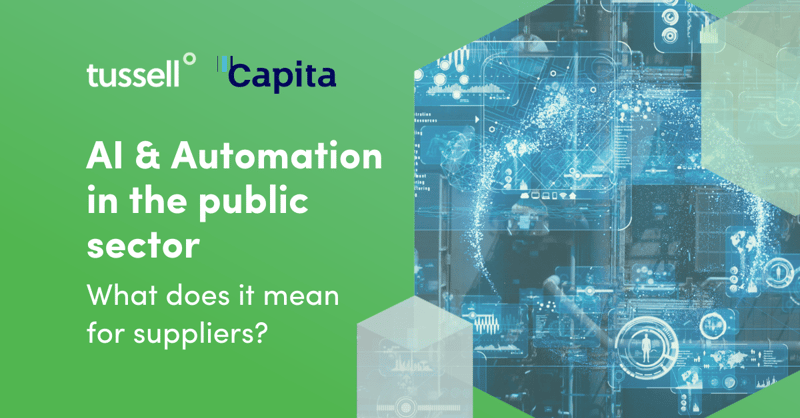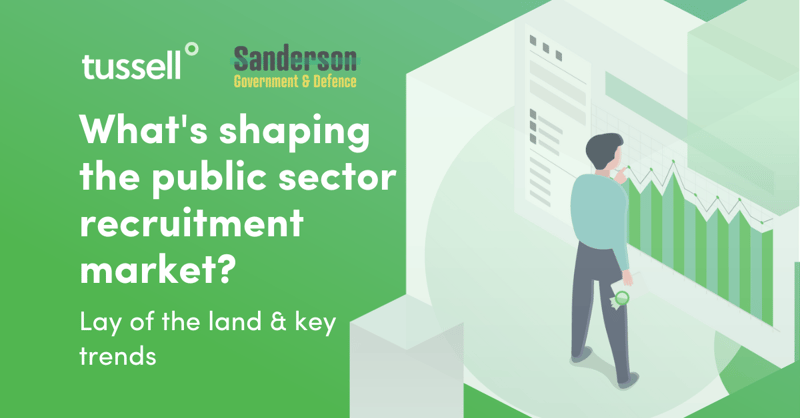Sustainability has risen to the forefront of the public sector's priorities.
Contracting authorities increasingly want to procure goods & services in a more long-term, ecologically-conscious manner.
As a result, public bodies are also looking more favourably on suppliers who can evidence their commitments to more sustainable business practices during bidding processes.
In this quick how-to guide, we look at why being aware of sustainable procurement is important to suppliers and provide you with some tips on the ways suppliers in the UK public sector marketplace can become more sustainable.
Skip ahead to read about:
- What is sustainable procurement?
- Why is sustainable procurement important for suppliers?
- How can you be a more sustainable supplier?
- Concluding remarks
🌳 What is "sustainable procurement"?
Sustainable procurement is the process of incorporating environmental, governance, and social factors of corporate responsibility into procurement processes and decision-making.
It requires a balance that considers the lowest environmental impact and positive social outcomes, whilst still meeting stakeholder requirements. This approach aims to balance economic considerations with environmental and social responsibilities.
It goes beyond merely, say, substituting materials, but instead seeks to create value for all stakeholders, including customers, suppliers, employees, and the wider community.
Embracing the triple bottom line concept (People, Profit, and Planet), sustainable procurement requires companies to report not only on economic performance but also on social and environmental impacts.
To find out more about the government's roadmap and aims for sustainable procurement, you can read their Sustainable Procurement Policy.
Alongside this, the government has a variety of sustainable procurement-related documents that are specific to their different departments and sectors. You can read these to give you a deeper understanding of the particular aims and processes in these areas.
Some key documents include, the CCS's guide on 'How to Build Sustainability into Procurement: staying on track for carbon net zero' and DEFRA's blog on sustainable ICT procurement.
💼 Why is sustainable procurement important for suppliers?
With an increasing onus from government for its departments, ALBs, the NHS and other buyers to think more about their carbon footprint and to procure more sustainably, it is important that suppliers "hit the mark" in this area.
For suppliers, engaging in sustainable procurement poses several benefits.
Adopting sustainable practices brings economic advantages, including cost control through a Total Cost of Ownership (TCO) approach, reducing the odds of breaching regulations, and means you're more likely to engage with and be a part of more resiliant supply chains. Adhering to sustainable practices provides a competitive edge, as many contracting authorities prioritise suppliers with strong ESG credentials. This can lead to increased market share and improved reputation.
Sustainable procurement helps suppliers minimise business risks, as it ensures compliance with environmental guidelines, reducing the negative impact of purchasing from non-certified sources.
Suppliers contributing to sustainable procurement also positively contribute to the communities in which they operate. This includes eliminating child labour, paying a living wage, involving employees in community projects, and investing in projects that improve the quality of life for citizens.
Sustainable procurement is vital for organisations seeking to balance economic, environmental, and social considerations.
It is clear to see the benefits of sustainable procurement for suppliers, but how can you achieve this?
🎯 How to be a more sustainable supplier
There are many ways in which a supplier can become more sustainable, from changing its practices and standards to collaboration and transparency initiatives.
Here are 10 things that you could do to be more sustainable, and become more competitive in your public sector market:
🌳 Adopting ESG Practices: Implementing and promoting environmental, social, and governance practices within your operations, such as reducing carbon emissions, promoting diversity and inclusion, and ensuring ethical sourcing.
🔍 Transparent Reporting: Provide transparent and comprehensive reporting on your sustainability efforts, including key performance indicators related to environmental impact, social responsibility, and governance practices.
🏅 Certifications and Standards: Obtain relevant certifications and adhere to recognised standards for sustainable business practices. This can include certifications for environmental management, fair labour practices, and ethical sourcing.
🎨 Innovation in Product Design: Develop and offer products that are designed with sustainability in mind, considering factors such as energy efficiency, recycling, and reduced environmental impact throughout the product lifecycle.
⛓️ Supply Chain Transparency: Provide visibility into your supply chains, disclosing information about sub-contractors and ensuring that all parts of your supply chain adhere to sustainable practices.
🤝 Collaboration with Stakeholders: Engage in collaborative efforts with customers, industry peers, and other stakeholders to share best practices, identify opportunities for improvement, and collectively drive sustainability initiatives.
🔄 Continuous Improvement: Demonstrate a commitment to continuous improvement in sustainability by setting goals, measuring progress, and actively seeking ways to reduce environmental impact and enhance social responsibility.
👥 Community Engagement: Contribute positively to the communities in which you operate by supporting local initiatives, providing fair wages, and actively participating in community projects.
🎓 Education and Training: Educate your workforce on sustainable practices, ensuring that employees understand the importance of sustainability and are equipped with the knowledge to implement and support such initiatives.
📄 Compliance with Regulations: Stay informed about and comply with evolving environmental and social regulations, ensuring that your operations meet or exceed legal requirements.
By adopting these practices, suppliers can not only meet the growing demand for sustainable products and services but also contribute to the broader goals of sustainable development and responsible business practices.
To find out more about what good practice in sustainable procurement looks like and what contracting authorities are therefore looking for, you can read DEFREA's 'Sustainable Procurement Tools'.
Concluding Remarks
Becoming more sustainable should be imperative for all suppliers, big and small.
Beyond the evident advantages of environmental stewardship, it reflects a commitment to social responsibility, ensuring fair labour practices, diversity, and ethical sourcing. By championing long-term resource viability, suppliers align with global sustainability goals, fostering resilience against regulatory changes and mitigating risks.
Moreover, the adoption of sustainable practices affords suppliers a competitive edge in a market where contracting authorities and other buyers are increasingly prioritising companies with robust environmental, social, and governance credentials.
The resultant cost reductions from operational efficiencies, coupled with the positive impacts on stakeholder relationships and the spur of innovation, underscore the integral role sustainable procurement plays in securing a resilient, ethical, and competitive future for suppliers.
*
It is clear that the need for more environmentally considered and sustainable procurement has never been more paramount - data, technology & the development of AI have risen and have formed part of a crucial answer to these calls. If you're a supplier in the public sector, there's never been a better time to get your head around sustainable procurement - just be sure you heed the advice above.
If you want to make meaningful inroads, you'll need data on your side to decide who to target, know who you'll be up against for opportunities, and what the best routes to market for your business are.
With Tussell, you can analyse public spend, contract awards, favoured frameworks and more, helping you make more informed decisions and strategies when selling to the public sector.
Book a personalised demo with our team to see how Tussell can unlock public sector insights and opportunities for your business.



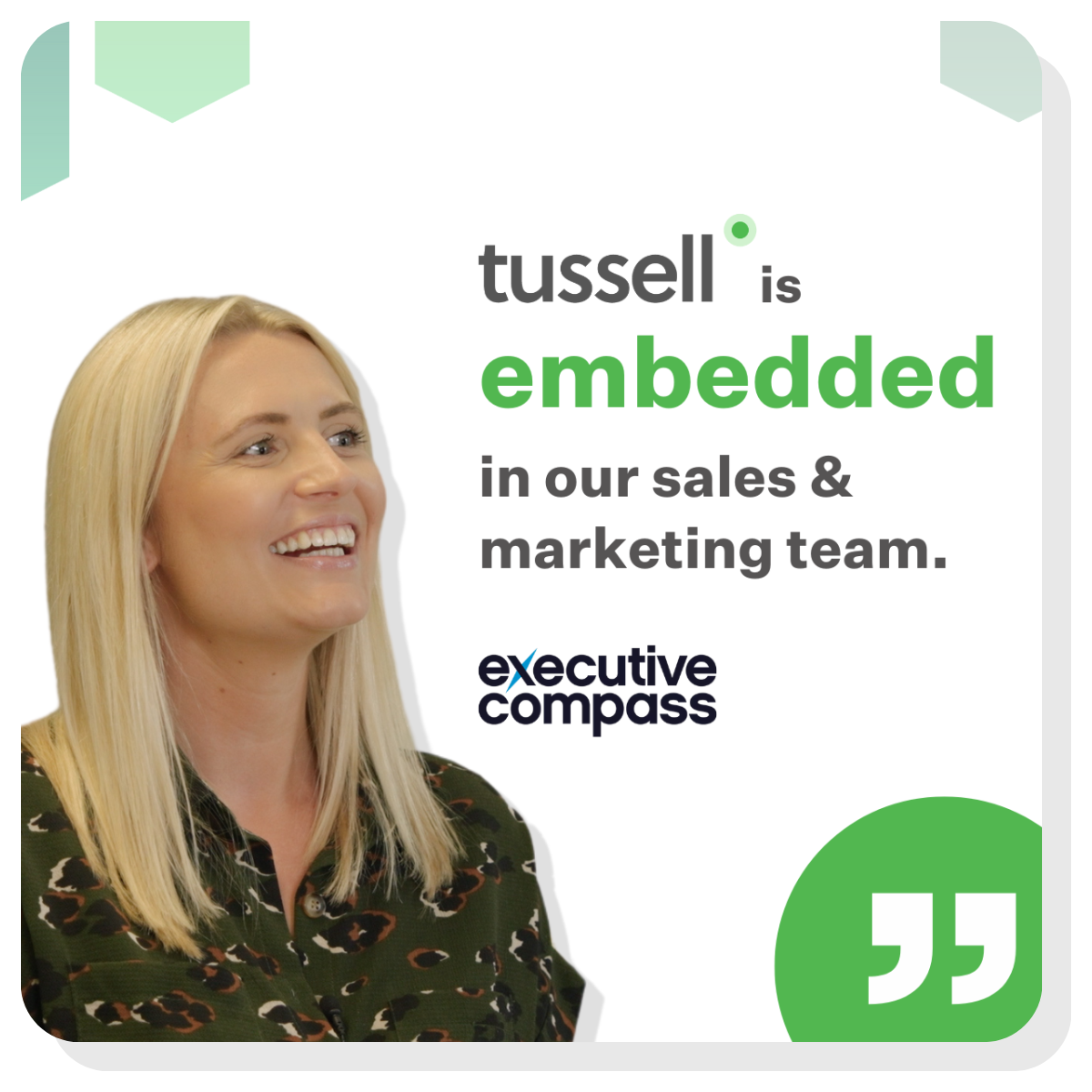
%20v1.png)
